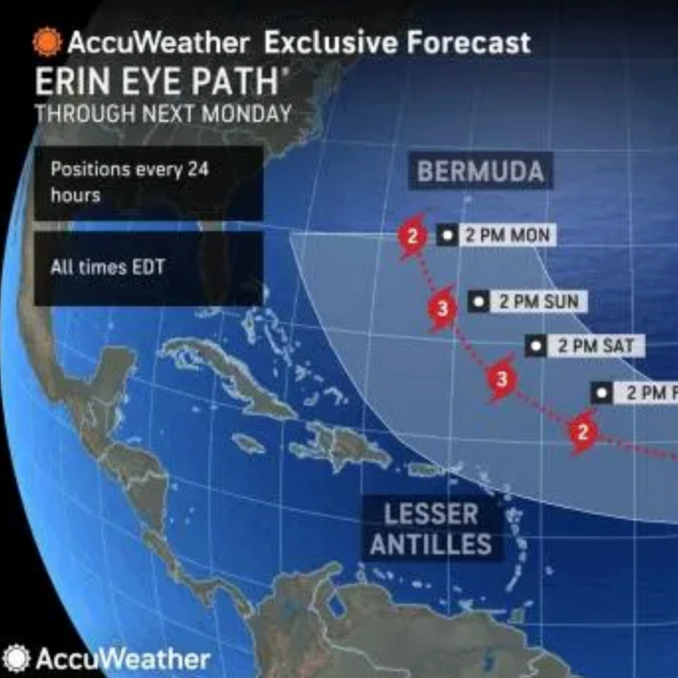The Future of Insurance Appraisal
Making appraisal work for everyone

Insurance Appraisal is a process provided for in most property insurance policies, designed to resolve disputes between an insurer and an insured when they cannot agree on the value of a loss. In this process, you and your insurer would each be required to hire your own appraisers which usually will cost a minimum of a few thousand dollars, and if they can’t agree on a settlement, you would have to split the cost of hiring a third party known as an umpire to resolve the claim.
The process can provide a relatively cost-effective solution to consumers to resolve disputed claims when an impasse in negotiation is reached. It provides the parties an opportunity to resolve disputed amounts much faster than in litigation.
Unfortunately, the process is wrought with inefficiencies and suffers from a lack of regulation that often hurts both consumers and insurance carriers alike. It’s because of these issues that the future of appraisal is likely to be met with many challenges.
What’s going wrong?
If appraisal is properly invoked, carried out, and awarded, the amount of loss is binding on the insurer and the insured. Invoking appraisal ends any direct negotiation between the parties and in most instances the process leaves the policyholder with no other recourse if they do not agree with the appraisal award. For this reason, appraisal should always be used as a last resort to resolving disputes.
To actually qualify an insurance claim for the appraisal process there first must be a dispute over the amount of loss, but appraisal is intended to be invoked only after the parties have exhausted negotiations. Unfortunately, appraisal has become much more frequently used than in the past. As more and more claims enter into appraisal, the clause is often being invoked before an honest attempt is made to resolve the claim.
Insurers have argued that appraisal gets policyholders paid quicker and, by preempting litigation, reduces insurers’ overall costs of settling claims, which reduces costs passed to future policyholders through decreased premiums. But insurance carriers are experienced with the appraisal process and have established relationships that benefit them in the process. This provides the insurance carrier with a distinct advantage over the inexperienced consumer.
While this disadvantage also exists in the traditional claims process, in that negotiation setting there is regulation and case law which regulates the carrier’s behavior and the insurance contract itself. In many ways this helps ensure a fair investigation of the insured’s claims and good faith effort to negotiate an equitable settlement is made. While that doesn’t prevent claims from being underpaid or wrongly denied, it does provide the ability to an insured to negotiate a settlement at no cost unless otherwise professionally represented by a public adjuster or attorney, as is often advisable.
Invoking appraisal largely removes the insurer’s and insured’s or their licensed representative’s voice from the negotiation. The cost of the appraisal is not consequential to an insurance carrier who may have vast financial resources whereas even the several hundred to several thousands of dollars an appraisal can cost can be a substantial burden to the policyholder. Additionally, appraisal is an informal process which leaves it susceptible to abuse. While most policies require the appraisers be competent to evaluate the amount of loss and to be disinterested in the outcome of the appraisal, they often are neither of those things. And any challenge of an appointed appraiser would have to be made in a court of law.
Insurance carriers often develop reliable relationships with the people they appoint to be appraisers. It is not uncommon for insurance companies and their appraisers to work together on many appraisals. There are instances of appraisers who have handled hundreds of appraisals for a single insurance carrier. If an appraiser represents any one insurance carrier with such frequency that they derive a regular or substantial income, they could be reasonably argued to not be disinterested in the outcome of any given appraisal.
Because appraisal was so infrequently used in the past, and because it avoids most litigation, cases of perceived misconduct are not frequently adjudicated. Nonetheless, there is case law which can be helpful to consumers and claims advocates to address premature demands for appraisal.
A Kentucky court (Continental Ins. Co. v. Vallandingham & Gentry) ruled; “There must be an honest attempt made by the insured and insurer to meet on the question of loss and damage before the appraisal should take place. The initial disagreement between the parties without some effort to resolve that disagreement is generally not sufficient to make the case ripe for appraisal.” The ruling opined that an insurance carrier, "will not be permitted to use this (appraisal) clause oppressively, or in bad faith."
While either the insurer and/or the insured may invoke appraisal if an impasse is reached, “The insurer must proceed promptly to take the necessary steps to have the amount of the loss adjusted as provided in the policy'' (Schouweiler v. Merchants' Mut. Ins. Ass'n). Any demand for appraisal prior to reasonably exhausting this effort could be considered an abuse of the appraisal provision.
When one considers that the policyholder is entitled to a fair hearing and good faith effort to resolve claims, that appraisal costs thousands of dollars, that the outcomes of appraisal are binding, and the ways in which insurance carriers maintain advantages over the consumer in the appraisal process, it is clear that demanding appraisal before every attempt has been made to otherwise resolve the claim amicably is an abuse of the appraisal provision and unfair to consumers.
Two sides to every coin
While appraisal can serve as a useful and cost-effective tool for policyholders to resolve disputed claims, the process is increasingly being used by consumers in questionable ways. This effort seems to be largely coordinated by less than reputable general contractors and other entities who generally are more familiar with the appraisal process. There is a saying, “knowing just enough to be dangerous” that fits these bad actors well.
Solicitation practices are prevalent in the restoration industry. One such practice commonly employed by these parties is to look for homes that have suffered minor roof damage from hail or other weather-related events. They case neighborhoods for this type of damage then approach the owners of the property with schemes they claim will get the property owners new roofs or other repairs through insurance settlement proceeds.
If the amount of money in a disputed claim is relatively small, say $5,000 or less, then an insurance carrier is more likely to be compelled to pay more in settlements than is reasonably warranted if the cost of appraisal would be more than the cost of paying the frivolous claim. Many contractors know this and can use appraisal as leverage. The process allows the contractor to provide broader scopes of work than are necessary and say, if you don’t like it, we’ll have to go to appraisal.
At this point, if the insurance carrier does not comply, the contractor will direct the insured to demand appraisal to determine the amount of loss. However, the contractor or entity that coordinated the effort will generally have an employee or other partner that will then handle the appraisal at no cost to the insured. Because the overall value of these claims is often very low, the appraisers often agree to resolve the claim for an amicable figure to avoid the cost of hiring an umpire. As this behavior becomes more prevalent, the insurance carriers end up paying many frivolous claims and over the aggregate, substantial amounts of money than is otherwise reasonably owed.
The future of appraisal
Appraisal is the most cost-effective and efficient way to resolve the amount of loss disputes that have reached an impasse, though it is clear that the process can be improved. The National Association of Insurance Commissioners (“NAIC”) acts as a forum for the creation of model laws and regulations for the insurance industry. Each state decides whether to pass each NAIC model law or regulation, and each state may make changes in the enactment process, but the models are widely adopted in different forms. The NAIC also acts at the national level to advance laws and policies supported by state insurance regulators. Any substantial uniform change to appraisal law would likely need to first happen at the NAIC level.
Many national and state trade associations, like the National Association of Public Insurance Adjusters (“NAPIA”), participate at the NAIC to advocate for improved industry standards and consumer protections. Even though the abuses of insurance appraisal mutually affect insurers and insureds in negative ways, there is little cooperation between those trade associations which advocate for consumer rights and those representing insurance companies and their lobbyists. Because the issues with appraisal that negatively affect these parties differ, the regulation or changes that may come in the future will likely have varying positive and negative impacts for consumers.
There are a number of changes that would better protect consumers from carrier misconduct in the appraisal process. Formalizing the appraisal process to create a mechanism that ensures participants are genuinely qualified and disinterested to the outcome could be helpful to both insureds and insurers alike.
Additionally, mandating specific standards for the reasonable and prompt investigation of claims could also prove valuable. Most states have already adopted versions of the NAIC Unfair Claims Settlement Practices Act (“UCSPA”) The purpose of UCSPA is to set forth standards for the investigation and disposition of claims arising under policies in a given state. The model act does provide that insurers must adopt and implement reasonable standards for the prompt investigation and settlement of claims arising under its policies. However, it stops short of defining what those standards should be or what defines “reasonable”.
While the UCSPA model act does help ensure carriers investigate claims in a timely manner, it does little to ensure that insurance carriers exhaust all reasonable efforts to amicably resolve claims with insured before forcing claims into costly alternative dispute resolution measures such as appraisal. Implementing clearer parameters for what constitutes an appraisable claim or further claims-handling guidelines for insurers that limits their ability to demand appraisal prior to paying all monies that are believed reasonably owed could provide much needed relief to consumers.
For insurance carriers, avoiding frivolous appraisal demands is difficult. But there exist ways for them to reduce instances of misconduct in the appraisal process. For one, only licensed public adjusters and attorneys are legally able to negotiate an insurance settlement on behalf of an insured. Unfortunately, many claims handlers will negotiate with an insured’s general contractor. Negotiating with unlicensed entities opens the door to the types of appraisal abuse that we have discussed here. Insurers should always confirm that the representative of an insured is appropriately licensed.
Insurance carriers can also challenge the impartiality of a chosen appraiser if impropriety is suspected. This however could result in substantially delaying resolution as legal challenges are resolved by the courts. That delay can also create legal liabilities for which a carrier may be resistant. Pursuing such legal challenges could also be cost prohibitive in many ways. To address this, the insurance industry could move to formalize the appraisal process by requiring appraisers and umpires to be licensed or registered. This would provide for a level of accountability that appraisers can be held to and disciplined if misconduct can be proven. It also would potentially provide for a quicker appraisal process by adopting uniform standards that could be more easily regulated.
Regardless of the problems that exist with insurance appraisal, it remains the most cost-effective and efficient way to resolve disputes pertaining to the amount of loss between insurance carriers and policyholders, once negotiation has failed. It’s a valuable tool that when used properly, serves as a great asset to reducing litigation and providing consumers with a way to overcome underpaid claims settlements.
Eastern Public is a complete property insurance claims and risk management firm based in New York. With over 20 years of experience, we are licensed to serve clients in the greater New York City area and across the East Coast, including New York, New Jersey, Pennsylvania, Connecticut, Massachusetts, Vermont, Maine, Rhode Island, DC, Maryland, North Carolina, South Carolina, Kentucky, and Georgia. For 24/7 claims advice and service, contact us
at
(929) 999.4674
or
info@EasternPublic.com
.
Our Work
News & Press







